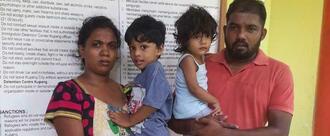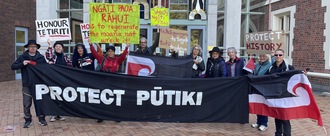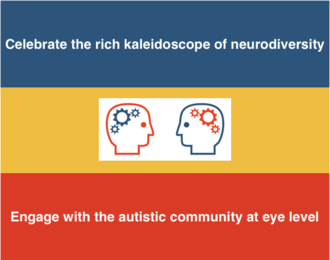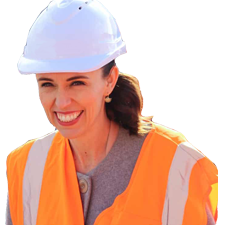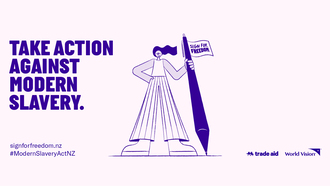-
OPEN LETTER: Stop sending our plastic waste to developing countriesNew Zealand has exported over 98,000 tonnes (and counting) of plastic waste offshore since the beginning of 2018. More than 46,000 tonnes of this has been shipped to Malaysia and Thailand. In the case of Malaysia, the plastics are imported from New Zealand and illegally burned next to schools and homes, causing a health and environmental epidemic. Cancer and asthma cases have increased. Microplastics leach into the waterways. The air is polluted with burnt plastic and ecosystems have been destroyed. The Ministry for the Environment has just published a consultation document on New Zealand's waste management strategy, "Te kawe i te haepapa para - Taking responsibility for our waste". Disappointingly, the consultation document does not “take responsibility” because it completely ignores the fact that our plastic waste exports are not being recycled by the receiving countries and the repercussions of this. The plastic waste is able to be exported because of a major loophole in the law: our kerbside recyclables and industrial plastics are not sufficiently regulated under the Imports and Exports (Restrictions) Prohibition Order (No 2) 2004 because they are considered “easily recyclable”. Section 11 of the Order requires a permit to be issued by the Environmental Protection Authority for hazardous plastics. Polyethylene (PE), polypropylene (PP), and polyethylene terephthalate (PET) recyclables are exempt from this law (under Part 2A of Schedule 3) and therefore are assumed to be “disposed of or managed in an environmentally sound and efficient manner in the importing State." Just because something is deemed to be “easily recyclable” does not mean that it is guaranteed to be recycled at the receiving country. We therefore call on the New Zealand government to immediately ban all plastic waste exports by December 2022 which is the last month that Parliament will sit in that year. New Zealand authorities still operate under the assumption that, as long as our plastic exports are easily recyclable, shipping them overseas is a satisfactory solution to our waste problem. In reality, New Zealand is shipping its emissions to developing countries. Some may say that the issue lies with Malaysian authorities not enforcing its own laws to stop the open burning of plastic waste. We reject this argument. The issue lies with New Zealand turning a blind eye to the reality on the ground. We are just as culpable when we knowingly export our waste to countries with poor resources, capacity and capability for effective monitoring, reporting, compliance, and enforcement and weak environmental and human rights protections. This is also a human rights issue and our moral obligation to Malaysia (and other developing countries) and its people should be paramount. We want the New Zealand government to invest urgently in systems and infrastructure that will reduce our reliance on plastic. It is not enough to tweak our regulations on the way our waste is exported, as the bigger problem lies with our overconsumption, poor import restrictions on toxic and single use plastics, and resins that cannot be recycled domestically. New Zealand is drowning in plastic and we cannot manage that amount responsibly, here or offshore. We need to turn off the tap and the government must establish policies and invest in systems and infrastructure that empower people to dramatically reduce their plastics consumption . We must reduce the range of plastics we import into New Zealand to those deemed non-hazardous by the Basel Convention: PE, PP and PET type plastics. We want the government to invest in companies that enable consumers to refill and reuse, rather than investing in a plastic innovation fund that will only preserve our plastic addiction (bioplastics, for example, are not necessarily good for the environment). We need the government to make plastic-producing companies responsible for their product’s lifecycle. New Zealand is embarrassingly behind other OECD countries in requiring companies to implement product stewardship schemes to address the problem at the source. We strongly urge the government to establish import controls and product stewardship laws. Use the regulatory tools we already have to streamline the type and amount of plastics that we do use to fit with our onshore recycling capacity. We also demand greater transparency and accountability from recycling and waste management companies to ensure that all post-consumer plastics are safely and domestically managed without any leakage to the environment. Even so, none of these measures will amount to much if we continue to send our waste overseas to vulnerable countries. We call on the Prime Minister to ensure that the waste management strategy is as transformative as its title suggests - that we are "taking responsibility for our waste" and not polluting other countries. To do this, we must immediately ban the export of plastic waste while transitioning to a safer circular economy in which plastics are minimalised. The government has boldly banned single-use plastic bags and microbeads, so it is no stranger to making bold decisions for the greater environmental and social good. Signed, Lydia Chai Pua Lay Peng Niamh Peren (Founder of Tino Pai Aotearoa / Thumbs Up New Zealand) Dr Trisia Farrelly (Political Ecology Research Centre, Massey University) Liam Prince (Aotearoa Plastic Pollution Alliance) Manawatū Food Action Network The ReCreators Sustainable Strategy Ltd Resilient Russell Charitable Trust Nonstop Solutions Carbon Neutral Waiheke Vision Kerikeri Federation of Women's Health Councils Aotearoa NZ Nuclear Free Peacemakers Network Waitangi Otautahi Inc 350 Otautahi Christchurch [Full list of organisations here: https://docs.google.com/document/d/18CppQ1cB2f3bV63xQxj6TWMK9bcLDq7Triwgb-EVpaw/edit?usp=drivesdk]11,824 of 15,000 SignaturesCreated by Lydia Chai

-
Return to COVID-19 EliminationA return to Elimination with improvements to the COVID Alert Levels is the way forward. We urge people to sign, to email their MPs, and to go on social media to say that we support a return to COVID Elimination, with improved economic supports, so we can effectively end the spread of COVID in our communities. The way to Level 1 is a supported Level 4. Our lives depend on it. The lives of our children and our whānau depend on it. We have done it before, we can do it again, if the government enables us.180 of 200 SignaturesCreated by Cassie Withey-Rila
-
Police bias at Pūtiki Bay marina developmentOn Thursday the 15th July the police deployed 6 Police Boats, 4 Paddy wagons, a helicopter, 2 drones, Police Media, diving squad & dog, and an estimated 4 police units (up to 100 police) all to arrest four peaceful protestors from Protect Pūtiki for 'wilful trespass', two of whom are Ngāti Paoa and whakapapa to the island, who were occupying the pontoon at the time. It remains un-clear who ordered the operation and why it was considered necessary to deploy such excessive police force. Maori wardens had been on site for at least a week and it is understood they had no forewarning of this operation. Protect Pūtiki and the wider community of Aotearoa demand an examination into why Police are continuing to uphold the corporate interests of this particular development, Kennedy Point Boat Harbour Ltd. At present, the Police have shown a commitment to empowering the KPBH Ltd. marina development with a continued daily basis, on-site presence. Police have facilitated the developers in forcibly delivering peaceful protestors in the Moana to the police boat where they are then arrested. We demand Commissioner Andrew Coster initiate an inquiry into the increased police presence immediately. Over the last month, when requests for assistance are made by protectors to police these calls often go unanswered, including in situations where no police have been present on site and protectors have sought their presence to provide for safety of all involved. Local police have chosen to not engage in order to maintain their community relationships but as a result their absence has left protectors without support when needed. Overall, the police presence has largely resulted in escalation of the situation rather than to de-escalation. There has been close to 80 complaints laid with the police department from both protectors and developers, largely regarding assaults and trespassing but to date only the protectors have been charged and appeared in court. We believe a formal apology from New Zealand Police addressed to the kaitiaki/protectors of the Pūtiki occupation is a reasonable demand that should accompany this inquiry. If the police presence is to be maintained at Putiki then as a bottom line they must uphold their own code of conduct which includes impartiality and ensuring safety of all participants - not purely to trespass or arrest kaitiaki/protectors and enable further development. Tautoko our main petition: https://our.actionstation.org.nz/petitions/protectputiki And stay updated with the occupation via IG: @protectputiki | Twitter: protect_putiki | Facebook: Protect Pūtiki | Email: [email protected]4,617 of 5,000 SignaturesCreated by Nââwié Tutugoro
-
Asylum 4 Assange in AotearoaAssange's detention and the charges against him threaten press freedom around the world, and therefore threaten our right to know what is going on and democracy itself. We must call out this injustice and offer protection to Assange. Doing so will have New Zealand be a leader on the global stage for press freedom, peace and transparent democracy.1,042 of 10,000 SignaturesCreated by Aotearoa 4 Assange

-
Honouring Asylum: Bring Andika Refugees to Aotearoa New ZealandAustralia's turnback operations are illegal. The New Zealand government has stated this, and that it respects the right to asylum. Therefore, intervention in this case is critical. Offering resettlement to these refugees would make the government’s commitment to its legal obligations clear, and would uphold its reputation as a humanitarian leader.254 of 300 SignaturesCreated by Honouring Asylum

-
#ProtectPūtikiWhen consent to this marina was granted, our stories were excluded. If we are not heard now, developers benefit directly from the displacement of our people, the displacement of our mātauranga and further colonise our environment in the process. Auckland Council and the Crown have a relationship with us under Te Tiriti o Waitangi. They are in a partnership with Ngāti Pāoa as mana whenua. In fact, when our iwi had our treaty settlement at Wharekawa Marae earlier this year, the Crown explicitly recognised the many historical grievances that Ngāti Paoa have endured which have directly caused the fragmentation of our people. As Uri o Ngāti Paoa, we want this recognition to go beyond words by enabling us the right to be heard now that we have begun to regather and heal. The partnership we are in comes with the responsibility for Tiriti partners to recognise and respond to the dynamic contexts and history of different hapū and iwi in a way that is more than just a minimal box-checking consultation process. It is imperative that developers engage in a robust consultation process that enables wider representation from mana whenua. This way, mātauranga which is directly relevant to the consideration of resource consents can be heard. A Rūnanga cannot speak for all voices of an iwi, for all hapū of that iwi, and for all people who whakapapa to that iwi. Active protection from Tiriti partners requires an inquiry into whether notification and “consultation” has reached those who are affected by a proposal. Through the Ngāti Paoa Iwi Trust, this did not occur. Auckland Council have acknowledged that the legal mandated entity for Ngāti Pāoa at the time (the Ngāti Pāoa Trust Board) and the people of Ngāti Pāoa were not consulted, but the Supreme Court determined that nevertheless, this does not need to be reheard by the environment court. We say that this does not come close to fulfilling Te Tiriti o Waitangi obligations and the principle of Active Protection. We say that we need to be heard by the environment court in order for an active relationship and partnership that supports tino rangatiratanga to be upheld. ⭑ Background Our bay at Pūtiki is under threat from the construction of a 7.3 hectare marina by developers Kennedy Point Boatharbour Limited. Amongst the plans of this marina are 186 berths sized from 10 to 30 metres, two septic tanks for blackwater and greywater sunk into the seabed and Aotearoa New Zealand's first floating car park. Hundreds of steel piles could be drilled into the seabed of the moana here at Pūtiki Bay to float the concrete structures of the marina. Tikapa Moana is an ancestral taonga for many hapū and iwi, including Ngāti Pāoa. Pūtiki bay is a wāhi taonga, a significant cultural landscape. The bay is the landing site of the ancestral Arawa and Tainui waka. After its great ocean crossing, Te Arawa waka named and journeyed through Tikapa Moana, finally coming into Pūtiki to be relashed. The day of relashing resulted in the awa, wetland, moana and nearby whenua being called ‘Te Rangihoua’ (The Day of Renewal). After exploring Tikapa further, the Arawa journeyed on to Maketu in the Bay of Plenty. Kahumatamomoe, (Son of Tamatekapua, Captain of the Arawa waka) and some of his whānau returned to Rangihoua to settle and named their pā site ‘Te Pūtiki o Kahumatamomoe’ (The Topknot of Kahumatamomoe). The whanga (bay) and moana, they named Pūtiki. More than 65 recognised archeological sites as well as other wāhi tapu surround this bay. Pūtiki Bay is a significant cultural landscape and a visual repository of our taonga, our whakapapa, our history. Tikapa Moana as a whole is already under threat. In every successive Hauraki Gulf Forum ‘State of the Gulf’ report, Tikapa Moana is found to be suffering continual environmental degradation. The State of the Gulf 2017 report states that the marine environment is seriously depleted and contaminated by developments, such as marinas. Any marina here on Waiheke would continue this destruction of our moana. The State of Our Gulf report 2020 found that many things have been lost or degraded from Tikapa Moana, and it has been progressively reshaped by human activities, often irreversibly. We know this marina would desecrate the cultural landscape of Pūtiki in a way which will be hugely damaging, character changing and irrevocable for Tikapa Moana. It will impact the taonga species that call Tikapa Moana and Pūtiki bay their home, amongst which are kororā (little blue penguins), makō (sharks), aihe (dolphins) and parāoa (whales). Our growing mātauranga of Pūtiki and connections with this bay are critical as a representation of our relationship as Ngāti Paoa, as Waiheke Islanders, and as people with nature and with our ocean at large. Now and for future generations, urgently encouraging and nurturing relationships of connection with the taiao (environment) are even more critical because this very moana is on the brink of ecological collapse. The proposed marina does not encourage a relationship of nurturing our natural environment, nor connecting with the mātauranga that carries life, culture and history. Instead, it furthers the monopolisation and privatisation of our cultural landscapes and environment. It is urgent that we actively protect and preserve our moana and restore its mauri which is under threat. Protect Pūtiki. #ProtectPūtiki @protectputiki https://www.facebook.com/protectputiki28,513 of 30,000 SignaturesCreated by Protect Pūtiki

-
Make the NZ courts safe for victim-survivorsThe following excerpt is taken from our open letter. On April 15, Stuff published a detailed case study of one woman’s treatment within New Zealand courts. This poignant story shows state power and ignorance colliding to harm a vulnerable woman: a woman who should have been able to rely on the state and the courts to understand her situation and protect her. Instead, it wrongly criminalised her, causing further harm and suffering. Mrs P was a party in Family Court proceedings. She provided a stack of evidence to the court that she had been abused by her former partner. In one of the documents she submitted in evidence, she twinked out private information that she did not want before the court. She initialled the change. In what was arguably, at worst, a misdemeanour ‘lay person’s redaction error’, the trial judge accused her of lying to the court. He appeared to take umbrage, bullying her during the trial and finding in favour of her former husband who had abused her. Not only did the trial judge disbelieve the woman had been abused, saying “I am in no doubt that she was not abused by [her ex-husband]”, he referred her to the police on the grounds of perjury. The case was prosecuted by the Crown, and Mrs P was convicted, narrowly missing a custodial sentence. Eventually the Court of Appeal overturned Mrs P’s conviction, but not before she had served a sentence of one year on home detention; been ordered to pay $400,000 in costs, resulting in bankruptcy; and lost her job as a teacher. The Government has refused compensation. The story highlights multiple occasions where the system has failed Mrs P – as a woman who suffered domestic violence, she was further harmed by the very institutions that women are urged to turn to for help. The treatment of Mrs P within both the Family Court and the District Court is a stinging indictment of the operations of our courts, and some of the judges and lawyers who operate within them. The detailed revelations about how Mrs P was treated in the Family Court are particularly significant, because such information is rarely provided for public scrutiny. Her mistreatment by the courts may seem extreme. However, core elements of this case resonate strongly with what advocates tell us about women’s and children’s experiences in the Family Court, and with what some of us know from our own practice and/or research. That is, the Family Court is currently unsafe for too many women who have experienced violence and abuse from their male partners, and for children who are subject to violence and abuse from their fathers or father-figures. In 2018, the United Nations Committee on the Elimination of Discrimination against Women (CEDAW), as part of its four-yearly review of New Zealand, was so concerned at the treatment of women and children in the Family Court, it recommended that there be a Royal Commission of Inquiry held. In March 2021, in its midterm review of New Zealand’s progress on that recommendation, CEDAW stated that the Government’s review into the Family Court failed to address the root causes of the problems and the issues of safety for domestic violence victims who come to the Family Court. CEDAW has recommended that the New Zealand Government “take appropriate action to address the root causes of the drawbacks for women, the obstruction of justice for women and the hindrances to their safety inherent in the family court system.” And furthermore, CEDAW has recommended that the state “operate the legislative and structural changes necessary to make the family courts safe and just for women and children, in particular in situations of domestic violence.” It is not good enough for New Zealand to say it is committed to preventing family and sexual violence, and to tell our population ‘It’s Not OK’, when the very courts many women will need to turn to for protection and for care-of-children arrangements are at risk of turning on them in their time of need. We continue to be deeply troubled by stories that mothers involved in the Family Court system risk being treated as vindictive and ‘alienating’ if they disclose violence and abuse they or their children suffer. Many of us have heard from women desperate because they have been warned that if they don’t stop raising concerns related to abuse of their children, they risk losing their children. We are writing to you, Prime Minister, with the following requests, because although the most excessive misuse of power in Mrs P’s case was in the Family Court, the problems rippled out more widely, implicating the District Court, the High Court and Crown Solicitors, and with ramifications for the safety and success of New Zealand’s family violence prevention messages. These problems, therefore, need to be tackled in each of these places, but with an overview of the interconnectedness of the problems. --------------------------------------------------------------2,069 of 3,000 SignaturesCreated by Action for Mrs P and other women and children in the Family Court
-
Inquiry into the consequences of conversion therapies for autistic childrenWe all celebrated to hear of the legislation being enacted that bans conversion therapy after years of campaigning by the LGTBQI+ community. However the win does not go far enough. The same underlying techniques of torture and dehumanising coercion continue to be applied to autistic children. Any legislation which is so selective as to ban only “conversion therapies” that target a person’s sexual orientation, gender identity, or gender expression is in itself discriminatory. If a government moves to ban the mistreatment of one minority in a particular manner but neglects similar mistreatment of other minorities it is more than negligent, it is actively legitimising prejudice. If a ban were to go through with specific reference to sexual orientation, gender identity, and gender expression alone, it would be much like an anti-racism bill that protected black people but left all other people of colour out in the cold. Instead of acknowledging anxiety and depression as the result of the highly stressful environments and dehumanising treatments that autistic children are exposed to, many "autism professionals" prefer to treat autism as the 'problem', and then use medication as treatment. The message to autistic people is very clear: 'you are not normal and we need to fix you'. This is wrong. The University of Auckland and other institutions in New Zealand still teach ABA. In Aotearoa certified ABA practitioners continue to advertise their services for children with “compliance” problems. Many autistic people who have been subjected to ABA and similar “treatments” end up with PTSD. Multiple studies confirm that the suicide rates for autists are are more than twice (1.9 to 9.9 times) the rates found in the general population. It is so important that people, and especially parents of autistic children, start listening to the lived experience of autistic adults. Many of us are in our 50s, 60s and 70s. We all started out as autistic children, without formal diagnosis, and without intensive ABA "therapy". We have found our path in life, we've experienced decades of discrimination comparable to the level of discrimination against LGBTQIA+ people 50 years ago, and we have remained autistic throughout. Neurodivergence is at the core of creativity. Autistic people don’t play social games, instead we actively resist them. Autistic people are best understood as the agents of a well functioning cultural immune system within human society. What are conversion therapies? Conversion therapies are “normalisation” therapies rooted in the techniques of torture and dehumanising coercion developed by Ivar Lovaas and Burrhus Frederic Skinner. The same techniques that are used by ABA therapists have been named as abusive in domestic abuse prevention legislation. Dehumanising abuse of all children, including autistic children, must be made illegal. The actual results that are achieved with conversion therapy include depression, PTSD, suicidal ideation, social expectations that are toxic for autistic people, as well as environments that create sensory overload. Why do we propose to consider a ban of all forms of conversion therapy? Conversion therapy never achieves its stated goal of “normalising” LGBTQIA+ or autistic children. Instead there is overwhelming evidence that conversion therapy results in extreme levels of irreversible trauma. The autistic population is much smaller than the LGBTQIA+ community, but the intersection between the two is significant. Compared to the general population, autists are 7 to 8 times more likely to identify as LGBTQIA+. It makes perfect sense to tie legislation around the protection of LGBTQIA+ rights to the protection of the rights of autistic people. What practices would need to be considered as part of a ban? Of the many labels used “Applied Behaviour Analysis” (ABA) and "Positive Behaviour Support" (PBS) are the most common ones. It is important to focus on all “therapies” that are rooted in the techniques of torture and dehumanising coercion developed by Ivar Lovaas and Burrhus Frederic Skinner. This initiative is part of the global Ban Conversion Therapies project (https://autcollab.org/projects/ban-of-conversion-therapies/), which keeps track of all the bans of conversion therapies that are already in place and all initiatives towards bans. More background information has been compiled by the Autistic Collaboration Trust in collaboration with the autistic community in New Zealand on the following web page: https://autcollab.org/2021/03/10/banning-autistic-conversion-therapy-in-nz/.672 of 800 SignaturesCreated by Jorn Bettin
-
End workplace exploitation and abuseWe want to convince the prime minister to change employment laws so victims can get prompt and fair justice. Only then will workplace exploitation and bullying stop. 🔥 Who are we? 🔥 UTU for Workers Union is a volunteer organisation campaigning to stop workplace exploitation and abuse. We provide representation to workers in non-unionised workplaces with employment problems. We are registered as One Union. We are an incorporated society and registered trade union. From May 2021 we will legally be renamed UTU for Workers Union.577 of 600 SignaturesCreated by Matt McCarten
-
Repeal and replace the Misuse of Drugs Act 1975Taking a health- and social-based approach to drug use would reduce stigma, meaning that community leaders, educators, health providers and whānau could focus more on prevention and harm reduction, while providing timely and judgement-free treatment or support. It would also mean that medicinal cannabis patients could access affordable relief without fear of prosecution. Prohibition continues to discriminate against Māori and Pasifika, who account for more than half of all cannabis convictions in Aotearoa. Convictions also fall disproportionately on young people. 2019 amendments to the Misuse of Drugs Act have failed to shift these unequal outcomes in criminalisation for low-level drug offences. Kākahungia te tangata ki te aroha, kaua ki te whakawhiu - Our people need a cloak of support and care, not punishment and stigma.7,332 of 8,000 SignaturesCreated by Emily Rosenthal
-
Call for Independent Inquiry into Institutional Racism and Racial Profiling by the Waikato PoliceWhere we live, work, play should be safe for everyone, no matter our ethnicity, what we wear, or who our friends are. Yet Police targeting and racial profiling is making people in the Waikato region feel unsafe. We call for an immediate independent inquiry which will: ○ Inquire into racial profiling by the Waikato Police and how the leadership and policies of the Waikato Police are impacting negatively on Māori, Pasifika and migrant communities. ○ Examine Waikato police's views about their behaviour and attitudes toward Māori, Pasifika and migrant communities in the Waikato District. Investigate the factors associated with attitudes among the Waikato command structure, it's hierarchy and policing staff to assess likely responses to proposed changes for building responsiveness to Māori, Pasifika and ethnic communities. ○ Examine the extent to which police attitudes are impacting on police practice and how Waikato Police aims to assess likely responses to the systemic changes in building responsiveness for Māori, Pasifika and ethnic communities. ○ Examine the cultural competency of the Waikato Police command structure, its hierarchy and officers. ○ Inquire into the role of the Waikato Gang Intelligence Officer under the 'Whole-of-Government Action Plan to Reduce the Harms Caused by New Zealand Adult Gangs and Transnational Crime Groups'. What role is the Gang Intelligence Officer and the Criminal Investigations Bureau providing to support gang members and their whānau through the co-design of a preventation focused strategy in the Waikato Police district? What training is given to Waikato Police officers surrounding the history of gangs in Aotearoa and cultural competency when policing gang members and their whānau and associates? In 2015, the Police Commissioner Mike Bush acknowledged the unconscious bias in the NZ Police service. This 'bias' is systemic, institutionalised racism.[1,2,3] Six years on, what cultural competency education/awareness programmes does the Waikato Police have in place to address the bias? An inquiry will assess the success or failure of these programmes measured in terms of police management and staff becoming more effective in their roles and exhibiting cultural responsiveness. If you’re Pākehā, have no criminal record, and encounter police you are less likely to be charged or sent to court than someone who is Māori. They found that police are 1.8 times more likely to take legal action against Māori than Pākehā, and seven times more likely to charge a Māori person with a crime, even when that person has no police or corrections record either.[4] Waikato police are targeting people because of their ethnicity which causes distrust in the community.[5] An independent inquiry can recommend the steps needed for real change, not just words. Te Huringa o Te Tai is the police strategy to change practices to reduce Māori over-representation in criminal justice statistics.[6] An Inquiry would look at how the Waikato Police utilising and implementing Te Huringa o Te Tai into it's everyday practice, professional development and liaison throughout all Maori, Pasifika and ethnic communities in the Waikato district? Aside from any recommendations we look forward to seeing: ○ Waikato Police acknowledge racism in their policing, taking responsibility, implementing cultural awareness and education programmes. ○ Waikato Police make a concerted effort to implement the NZ Police Strategy, Te Huringa o Te Tai, and genuinely working with all sectors of the Waikato community. This could be through the creation of a community leadership table where everyone has a say on community safety. ○ Communities being at the front and centre of owning our problems, and Police building genuine relationships with all sectors of community and valuing and respecting their leadership and input. ○ Consideration for the Waikato Police district to establish a mandatory requirement for all officers to wear body cameras. Body cameras are an effective tool for police reform and transparency. ○ Evaluation surveys implemented throughout high Māori, Pasifika and ethnic population communities in the Waikato Police district. These surveys will inform police so they can be responsive to each community. Waikato Police must not only engage with and listen to what each community wants from its police service; it must also use that information to guide its operations. This would also include the community participating in the co-design of their local community policing initiatives. Sign today to call for an inquiry and to make our communities truly safer. [1] Commissioner: Police addressing bias in Māori relations. 2015 https://www.newshub.co.nz/home/new-zealand/2015/11/commissioner-police-addressing-bias-in-maori-relations.html [2] Treatment of Māori by police is more than just unconscious bias in the force, psychologist says. 2020 https://www.tvnz.co.nz/one-news/new-zealand/treatment-m-ori-police-more-than-just-unconscious-bias-in-force-psychologist-says [3] Racial stereotyping by police 'systemic, institutionalised': Race Relations Commissioner, 2021 https://www.nzherald.co.nz/nz/racial-stereotyping-by-police-systemic-institutionalised-race-relations-commissioner/KY7MLSJLUKALPCFZIYSBLFYK5Y/ [4] Yes, there is racism in our police. Here’s what we can do about it. Spinoff, March 2020 https://thespinoff.co.nz/atea/05 [5] Waste of resources': Mongrel Mob claim police 'intimidation' after raid of birthday function. NZ Herald, February 2021. https://www.nzherald.co.nz/nz/waste-of-resources-mongrel-mob-claim-police-intimidation-after-raid-of-birthday-function/SQ2A7JBOPJVPMIVNQXBGV536MI/ [6] Police launches Te Huringa o Te Tai. New Zealand Police. November, 2019 https://www.police.govt.nz/news/release/police-launches-te-huringa-o-te-tai280 of 300 SignaturesCreated by Lou Hutchinson
-
Take Action against Modern Slavery40 million people globally are in modern slavery. Unlike many other countries, New Zealand has no legislation that requires companies to undertake due diligence looking into the risks of modern slavery within their supply chains and taking actions to address those risks. Modern Slavery legislation is a key way for New Zealand companies to work together to eliminate modern slavery in private and public sector supply chains. WHAT IS MODERN SLAVERY? Modern slavery is the severe exploitation of other people for personal or commercial gain. Modern slavery is in the clothes you wear, the coffee you drink and the goods you love. WHY DO WE NEED A MODERN SLAVERY ACT? 40 million people globally are in modern slavery. There are more people in slavery now than in any other time in history. The world is small and interconnected. Every time we purchase a product there is a chain reaction felt around the world. No country or industry is unaffected. Unlike many other countries, New Zealand has no accountability legislation that addresses transparency in supply chains. This means that New Zealand companies could unknowingly be importing products or services by which people are exploited and enslaved. WHAT WOULD A MODERN SLAVERY ACT DO? Modern Slavery Acts make it easier for a consumer to expect slavery-free products and services from companies. They help prevent slavery through transparency and accountability. They require businesses to understand the risks of modern slavery in their purchasing, to report on those risks and take action to address them. They give the business community guidance and a level playing field. For further information, resources and to get involved check out our campaign website - https://www.signforfreedom.nz/20,873 of 25,000 SignaturesCreated by Trade Aid and World Vision .






